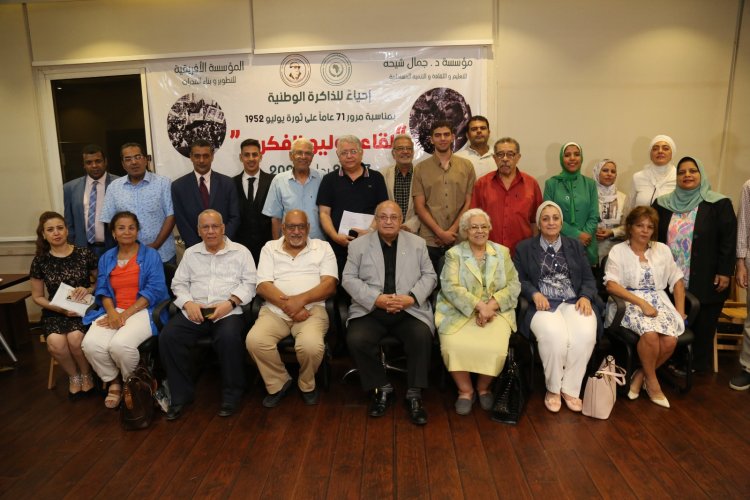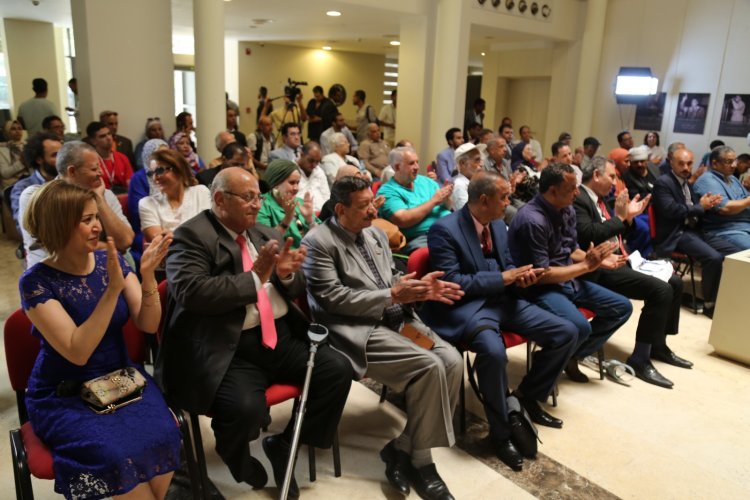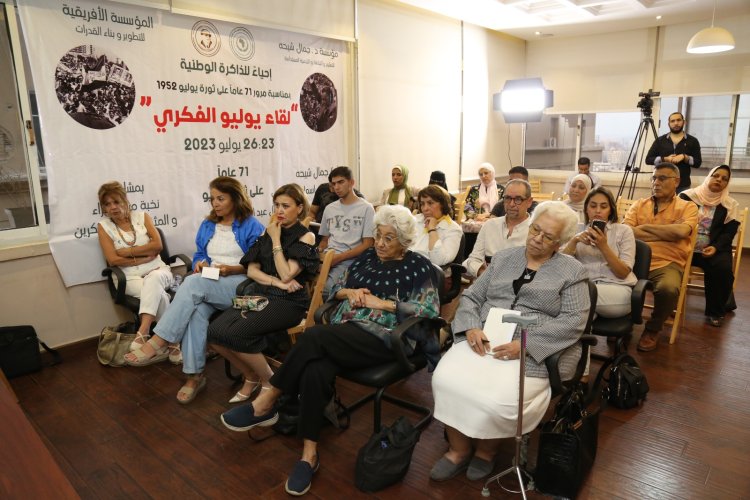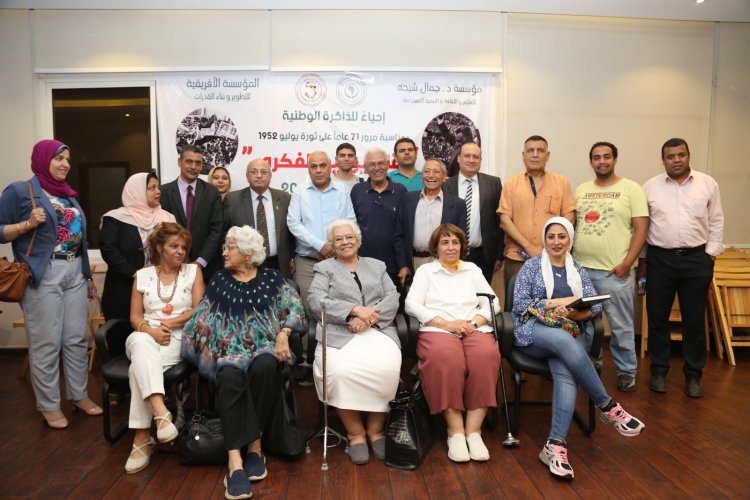July's first intellectual program... celebrating the fifth anniversary of the Nasser Youth Movement

In conjunction with the celebrations of the free nations on the 71st anniversary of the glorious July Revolution and the Egyptian celebrations of the 67th anniversary of the nationalization of the Suez Canal, the Nasser Youth Movement, in collaboration with the Pan African Foundation for Development and Capacity Building, organized the first 'July Intellectual Program' from July 23rd to July 26th. This year marks the fifth anniversary of its establishment.

This was part of the Pan African Foundation for Development and Capacity Building's program of "solidarity and peace", aiming to revive and strengthen the culture of solidarity and collaboration among peoples, focusing on the concept of South-South cooperation. It draws inspiration from the principles set by the late leader Gamal Abdel Nasser for the global South and Africa in particular, being the "Father of Africa and its liberator" and a pioneer of African unity with his brother Nkrumah, which culminated in the establishment of the "African Union Commission" in 1963.
The program spanned four days, starting with a visit to the tomb of the leader Gamal Abdel Nasser, followed by the opening session at his museum. The Pan African Foundation for Development and Capacity Building hosted the rest of the program's events, featuring a constellation of speakers and thinkers, including Engineer Abdel Hakim Gamal Abdel Nasser, the son of the late leader, Professor Prof. Gamal Shiha, the Chairman of the Board of Trustees of the Pan African Foundation, and Dr. Hassan Mousa, Archbishop Atallah Hanna, the head of the Orthodox Diocese of Sebastia in Jerusalem, Professor Dr. Jamal Shakrah, a professor of modern history at Ain Shams University, Dr. Mohamed Talba, the head of "Atjehat" Foundation for Consultations and Studies, Dr. Mohamed El-Saeed Idris, the academic advisor of Al-Ahram Center for Political and Strategic Studies, Professor Dr. Gouda Abdel-Khaleq, an economics professor at Cairo University and former Minister of Solidarity and Social Justice, Professor Hassan Heikal, the economic expert and former member of the political bureau of the Nasserist Party, Professor Gamal Abu Aita, the former Minister of Manpower and Immigration, Dr. Nadia Gamal El-Din, a professor of educational foundations at the Faculty of Graduate Studies for Education, The novelist and journalist Youssef El-Qa'id and Professor Saham Najm, the president of the Women and Society Association.

The first session discussed "July Revolution: Behind the Scenes and Memories." Then, the events of the second day were covered in a session titled "A Futuristic Reading of the July Revolution." This session addressed the intellectual documents of the July Revolution, including the book "The Philosophy of the Revolution" and the Charter. It also delved into the features of a sound democratic life for the government of the July Revolution.
During the events of the third day, the sessions discussed the July Revolution and the role of the economy in social advancement. The discussions focused on the development approach of the July Revolution and its vision for the social advancement of the working class, bridging the past and the future. The activities of the fourth day were rich and varied, covering several important topics, including education as a tool for social development, the gains achieved for women during the July Revolution. The sessions concluded with a session on the completion of the Suez Canal as a model for owning the tools of change.

